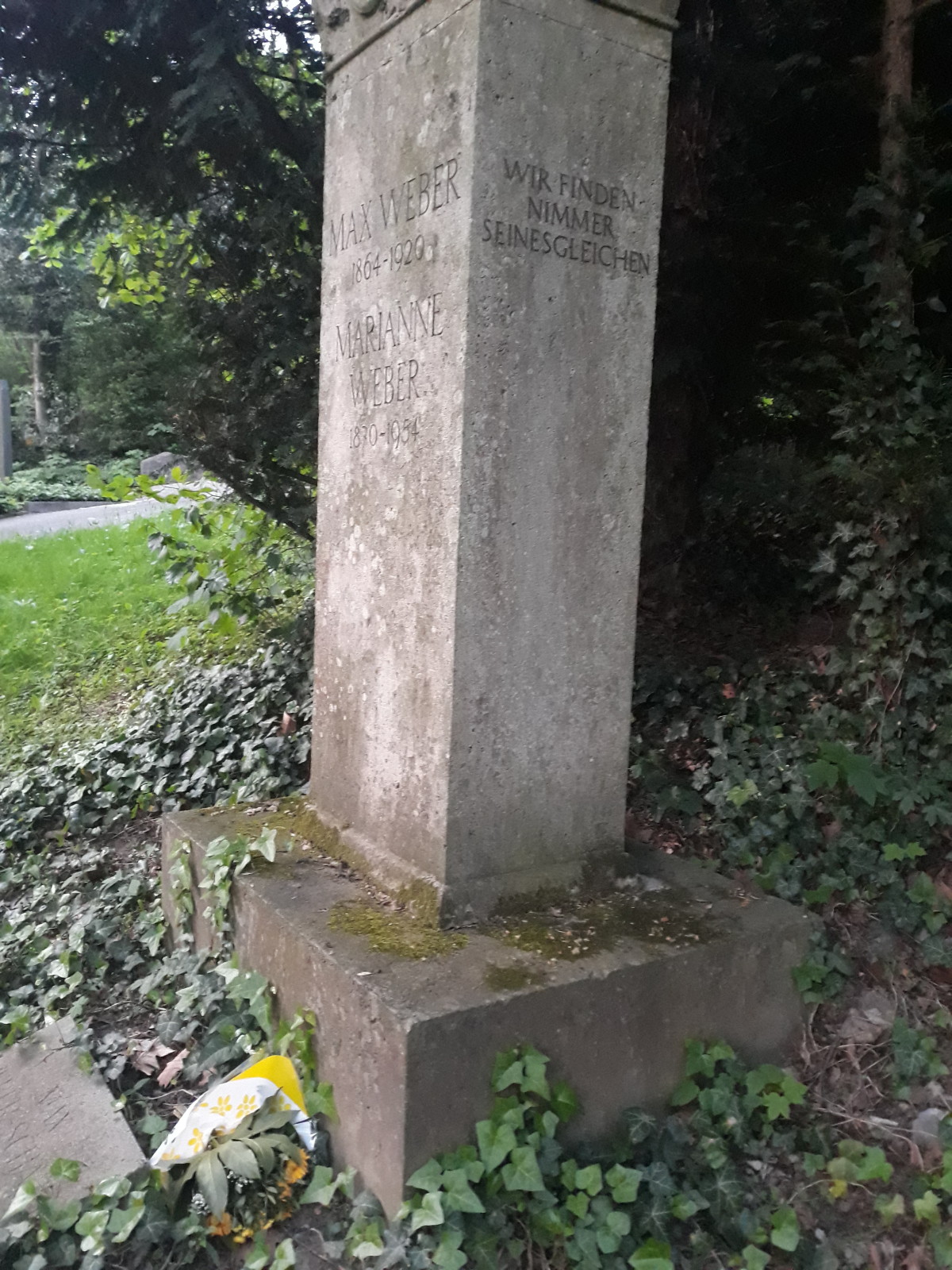New 3QD-column:
In the school vacation, I finally decided to go on what is probably my only-ever academic pilgrimage: I visited Max Weber’s tombstone in the Bergfriedhof cemetery in Heidelberg.
I had intended to go for some time. In my original plans, I’d go on foot (from the Netherlands) like a proper pilgrim, but after years of failing to go through I had come to realize that was not going to happen anytime soon. So I went by train. Which was too easy; I stood next to the monument before I knew it. I’m still coming to grips with the fact that only on the first time can you do a thing like this properly – that is, with enough ascetic self-denial to mark the purposefulness of your actions – and that I messed up that one chance.
Oh well. Isn’t it fitting to feel the charismatic potential of this particular relic being sapped by the very efficiency of modernity – the stahlhartes Gehäuse of the InterCity Express, working unfailingly to disenchant this tiny part of the world, too. Except for one detail, which I’ll get to later.
More here

